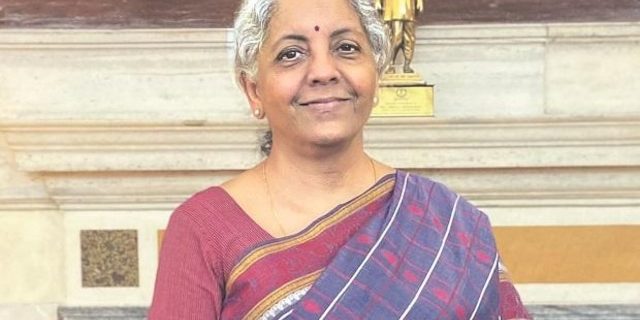Finance minister Nirmala Sitharaman on Thursday called on the G-20 nations to examine the feasibility of bringing non-financial assets such as crypto and immovable properties under the purview of automatic exchange of information among countries. The move is meant to enhance tax transparency. “Our investigations have shown that numerous layers of entities are often set up by tax evaders to conceal their unaccounted assets even though the automatic exchange of information framework provides for financial account information to various jurisdictions,'' the FM said during the G-20 Ministerial Symposium on Tax and Development in Bali.
tax evaders explore other avenues to shift their unaccounted wealth through investment in non-financial assets, Sitharaman pointed out. “While the development of crypto asset reporting framework is underway, I call upon the G20 to examine the feasibility of an automatic exchange of information in respect of other non-financial assets beyond those covered under the Common Reporting Standards (CRS) like immovable properties as well,” she said. Rasing concern over tax transparency issues, the FM said that those jurisdictions which are not yet part of the automatic exchange framework will have to be brought in. ‘'For that, G20 must play the role of a catalyst.'' More than 100 countries have committed to exchanging financial account information under the mechanism. Global minimum tax On the proposed global minimum tax deal, the FM said G-20 should ensure that developing nations do not face any unintended consequences and earn meaningful revenues. A total of 130 countries, including India, had in July last year agreed to a overhaul the global tax norms so that global digital giants such as Facebook, Google and Netflix pay taxes wherever they operate and at a minimum 15 per cent rate. The proposed inclusive framework, under the support of OECD, is trying to rewrite and update a century-old tax rules, she said. The FM also highlighted administrative issues because of variations between countries.
Since such issues could affect the implementation, there's a strong need for broad-based capacity building and guidance on the novel changes being brought in through two-pillar solutions, according to Sitharaman. She also said that the concerns of developing nations should also be addressed while formulating rules for the proposed two-pillar tax deal to bring about a fairer and inclusive tax system. In the proposed system, pillar one is about reallocation of additional share of profit to the market jurisdictions and pillar two consists of minimum tax and subject to tax rules. Sitharaman wants the G-20 inclusive framework to support active participation of all members while finalising the technical aspects of the two-pillar solution. The inclusive tax system is expected to result in meaningful revenue for developing countries.






